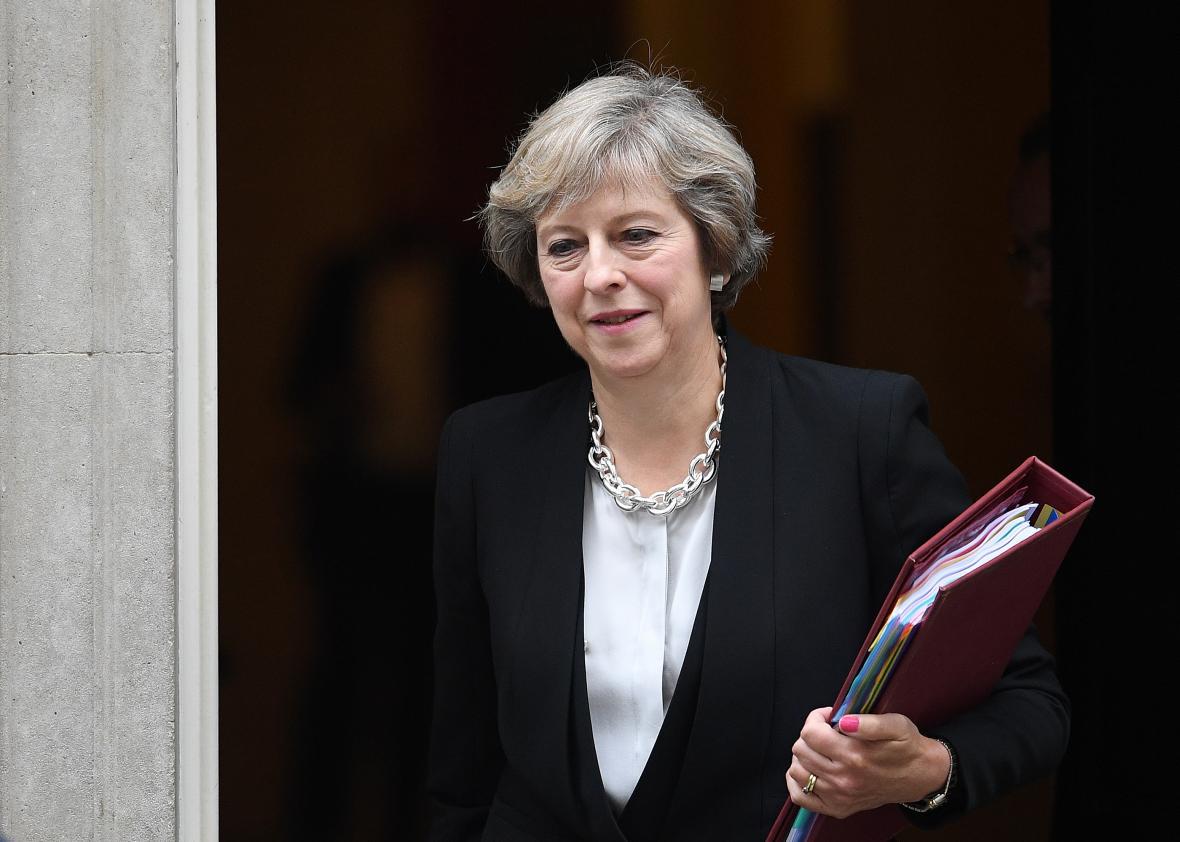In a statement to Parliament on Wednesday following her return from the G20 meeting in China, British Prime Minister Theresa May said that no one should expect any clarity any time soon on when and how Britain will finally cut its ties with the European Union:
I know many people are keen to see rapid progress and to understand what post-Brexit Britain will look like. We are getting on with that vital work but we must also think through the issues in a sober and considered way…
We will not take decisions until we are ready, we will not reveal our hand prematurely and we will not provide a running commentary on every twist and turn of the negotiation.
So, is the Brexit ever going to happen?
If you’ll recall, the big question after June’s Brexit referendum was when the government would take the step of invoking Article 50, the formal (and never before used) mechanism through which countries withdraw from the EU. Once Article 50 is triggered, Britain will have two years to negotiate the terms of its withdrawal and its future trade and political relationships with the EU before it is formally out. When the Article 50 countdown begins, Britain will be at a major negotiating disadvantage (expecially since other European leaders have an incentive to make this as unpleasant as possible for Britain in order to discourage any countries from getting similar ideas), so they’re trying to get as many concessions as they can now, before the clock officially starts running. So May, who opposed Brexit as David Cameron’s Home Secretary, has said her government will not trigger Article 50 until it can reach an outline agreement with European leaders on the terms of withdrawal. Other leaders, notably Germany’s Angela Merkel, do not like this strategy at all and are urging the Brits to get things moving already.
May got an earful at the G20 meeting, with Italy urging them to hurry up, Japan suggesting that its companies may pull out of Britain if it doesn’t maintain full access to the European common market, Australia saying it wouldn’t negotiate a new free-trade deal with Britain until Brexit is settled, and President Obama saying that the U.S. will prioritize trade deals with the EU over building a new trade relationship with the U.K.
May’s strategy, reaffirmed in Wednesday’s statement, has been to say as little as possible about what she imagines Brexit will look like. When it comes to specifics, such as what controls post-Brexit Britain will have over EU migrants, she’s studiously vague. The government’s main stated position is the now tired cliché that “Brexit means Brexit.”
But does it? On Monday, Parliament debated a petition, signed by more than 4 million people, demanding a second referendum on EU membership on the grounds that the pro-Brexit camp seemingly never had a plan for what would happen if they actually won the vote. Several lawsuits have also been filed forcing the government to acknowledge that only an act of Parliament, the majority of whose members opposed Brexit, can trigger Article 50. So far, these efforts haven’t gotten much traction, but the longer May stalls and obfuscates, the more people will start to wonder if Brexit is really going to happen at all. Maybe that’s the idea.
